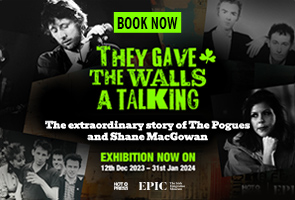The man from Kilmashogue
Published in 20th-century / Contemporary History, Issue 4 (July/August 2012), News, Volume 20History Ireland marks the passing of James ‘Shay’ Courtney: soldier (he served with the Irish Army on the United Nations peace-keeping force in Cyprus); husband and father of all the Courtney clan; political and community activist; plumber; trade unionist; mature student at Trinity College, Dublin; ebullient conversationalist; folk-singer; historian. A proud Irish republican, Shay had no time for the internecine squabbles of left-wing politics, counting among his many, many friends Official IRA chief-of-staff Cathal Goulding, Sinn Féin TD Seán Crowe, Fianna Fáil MEP Niall Andrews and Kadar Asmal, president of the Irish Anti-Apartheid Movement and later minister in Nelson Mandela’s South African government. He was held in high regard in Belfast and points north. Like his father, Jack, before him, Shay spent his life where he died, in Kilmashogue in the Dublin Mountains, where pikes were made in 1798 and Fianna boys drilled in 1922. He loved his own place, and knew every stone in it and the history of every family thereabouts. (This letter to History Ireland exemplifies Shay’s passion for history and his mastery of detail.) In the last (telephone) conversation I had with him, he held forth passionately on the—threatened—eighteenth-century ruins of Kilmashogue mill. In addition to his unrivalled local knowledge, to which can be added his expertise on 1798 and Fenianism, Shay was a walking, talking encyclopaedia of the 1916–23 period. In recent years he researched a project on a member of Michael Collins’s ‘squad’, Mick O’Donnell, who subsequently emigrated to America, where Shay followed in pursuit of family lore. As Dr Ruan O’Donnell of the University of Limerick said in his graveside oration, Shay was, bar none, the most prodigious and resolute field researcher he had ever known. HIJim Smyth, University of Notre Dame.
















